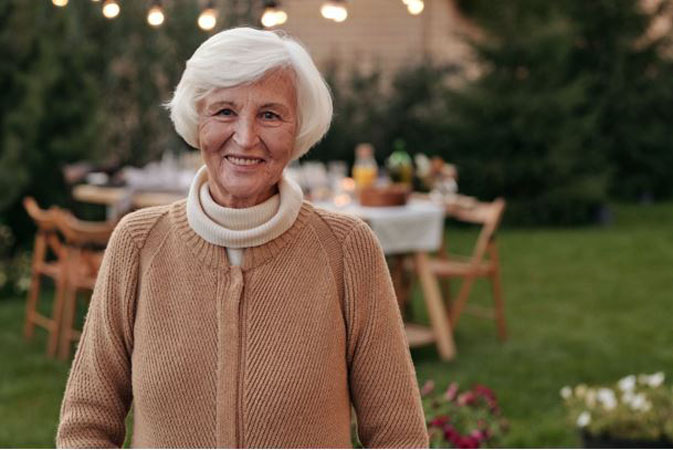|
Retire Early
Lifestyle
Retirement; like your parents, but way cooler

|
In 1991 Billy and Akaisha Kaderli retired at the age
of 38. Now, into their 4th decade of this
financially independent lifestyle, they invite you
to take advantage of their wisdom and experience. |
|
Things to
Watch for As Your Body Ages
Sam Bowman

image source: Pexels
There’s no denying that getting older comes
with changes to your body. While some of those changes might be irritating at
best, there are plenty of ways to embrace them and feel good about your later
years!
One of the best ways to do that is simply
to pay attention.
There are certain things you should watch
for as your body ages. Being in tune with some of those changes will make them
easier to spot early on. When you do that, you can take the best possible
route(s) to treat any health issues or simply start focusing on taking better
care of your health.
Common Aging Issues
The most common aging issues have less to
do with wrinkles and age spots and more to do with what’s happening on the
inside. For example,
if
you're losing more than the average 50-100 strands of hair per day, many factors could be playing into it. Some of the most common
causes are genetics, your diet, or even certain medications. However, hair loss
could also be
a symptom of certain health conditions, including:
● Lupus
● Alopecia
● Graves’ Disease
Fatigue is also a sign that could indicate
other health issues are going on. Problems like rheumatoid arthritis, diabetes,
heart disease, and kidney disease
can all
cause fatigue and make you feel like
you’re “running on empty” more often than not.
Unfortunately, your risk of developing
those conditions increases with age. Emotional struggles could also contribute
to fatigue, and seniors are often more at risk of those, too. Whether you’re
grieving the loss of a loved one, you’re anxious about your future, or you’re
starting to feel like you don’t have control over your own life, anxiety and
stress can lead to exhaustion.
With that in mind, it’s extremely important
to understand the causes of as many problematic symptoms as possible as you get
older. Fatigue could mean a variety of things. But, feeling fatigued in
combination with muscle pain or frequent headaches could be a sign of something
more serious. If you’re noticing common aging issues combined with more
challenging symptoms, it could be time to talk to your doctor.
Physical Changes
In addition to some of the common changes
you might already be aware of, understanding the physical things you should
watch for will make it easier to stay on top of potential ailments and health
concerns. Plus, keeping track of your physical wellbeing will make it easier to
stay healthy and strong as you get older.
Some of the most notable physical changes
seniors go through include:
● Balance issues
● Oral health problems
● Muscle degeneration
● Hearing loss
Vision issues are also common as people get
older. Cataracts and refractive errors are often things that can be treated when
you notice them early enough. If you’re experiencing frequent headaches or
having trouble seeing the way you used to, getting your eyes checked for any
underlying vision problems can make things clearer.
Making your physical health a priority is
easier than you might think. It involves getting enough sleep, eating right, and
staying physically active. You might not want to run a marathon or play a team
sport the way you used to. But, finding a physical activity you enjoy and
something you’ll stick with can reduce the degeneration of your muscles, improve
bone health, and promote balance.
Try activities like hiking or swimming to stay
physical and spend time outside. Doing so can also benefit your mental health,
which requires just as much attention as your body.
Mental Health Risks
Most people understand the physical changes
that can happen as you age. But, did you know that seniors are often at a
greater risk of developing mental health issues, too? Some of the most common
mental health conditions that affect older individuals include:
● Dementia
● Anxiety disorders
● Depression/isolation
● Psychosis
It’s also not uncommon for seniors to deal
with behavioral disorders as a result of cognitive deterioration. That could
include things like states of confusion or having trouble sleeping at night.
Mental health should be a priority for all
people. But, as you get older, it’s important to recognize that your brain is
aging too. Taking care of your mental health is just as imperative as monitoring
your physical health. Thankfully, there are just as many things you can do to
stay “mentally fit” as you age. Getting plenty of rest, eating well, and
exercising are all just as good for your mental health. Additionally, you can
keep your brain healthy by:
● Managing your stress levels
● Getting plenty of sunlight
● Staying social
● Doing things you enjoy each day
No matter how many stereotypes or jokes
there are about “getting older,” it’s something to take seriously. If you’re
mindful of your health and you pay attention to your overall wellbeing, you’ll
be able to age gracefully and
feel young
again, well into your golden years.

About the Authors



Retire
Early Lifestyle appeals to a different
kind of person – the person who prizes their
independence, values their time, and who doesn’t
want to mindlessly follow the crowd.
HOME
Book Store
Retire Early Lifestyle Blog
About Billy & Akaisha
Kaderli
Press
Contact
20 Questions
Preferred
Links
Retirement
Country Info
Retiree
Interviews
Commentary
REL
Videos
|